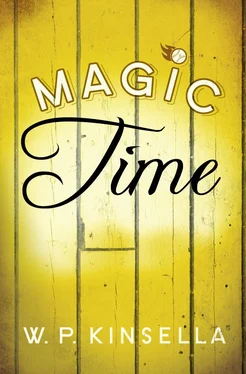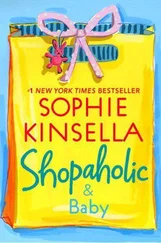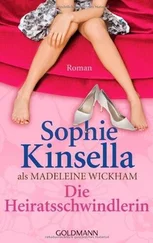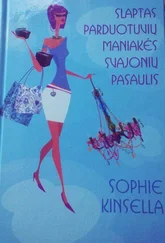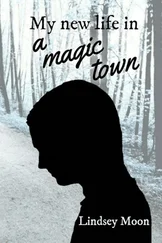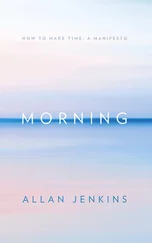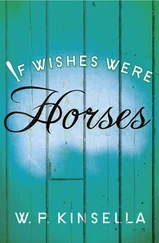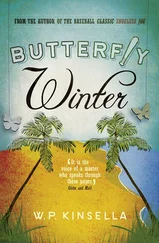A couple of days after Roger Cash appeared in town, I walked out to the Dorn farm, arriving at mid-afternoon on a high-skied, blazing day. The farm house was tall and sad-looking, badly in need of paint. I knocked at the side door; like farmers everywhere the Dorns did not use their front door. One of Julie’s aunts answered, wiping perspiration from her forehead with the back of her hand.
‘Julie and her sister are coiling hay in the north pasture,’ she said.
1 could not see into the house because of the thick screen on the door, but from the dark interior came the smell of pork roast, the fumes mouth-watering, almost tangible.
I walked through a grove of trees, enjoying the temporary coolness in the midst of the fiery day. I picked a bluebell, split the bell, and rooted out the teardrop of honey inside.
In a half-swathed field of red clover, Julie and a younger sister were at work with pitchforks, layering the hay into coils, which, when finished, resembled giant beehives.
‘You townies don’t know how good you’ve got it,’ Julie said, driving the tines of her fork into the earth, stilling the vibrating handle, then leaning on it as if it were a tree.
She was flushed and perspiring. Her copper-colored hair spilled over her forehead and was flecked with clover seeds. She wore jeans and a short-sleeved blouse the color of cowslips. The back and underarms of the blouse were soaked dark. She wasn’t wearing a bra. I realized that even after my three-mile walk I was still cool. I was wearing a white open-necked shirt and khaki shorts. Even though my hair was lightened by the sun, I had not tanned much. Julie’s arms and face were sunblackened, her hair bleached golden in spots.
‘Can I help?’ I asked, hoping to win favor.
‘Sure,’ Julie said, smiling too knowingly, as if there was some private joke. ‘Beat it,’ she said to her sister. The younger girl stabbed her fork into the ground and raced off, happy to be relieved of an unpleasant job.
I have probably never worked as hard as I did in the next fifteen minutes – and accomplished less. I might as well have been trying to coil water with that pitchfork. Julie offered no advice. As I worked, I babbled on about my new friend, Roger Cash, and the upcoming baseball game, mileages, distances, posters, concessions, while accumulating a pitiful pile of clover that bore no resemblance to the waist-high beehives Julie and her sister had created, the hay swirled in circular patterns, the swaths interlocked, impervious to wind, resistant to rain.
While I worked Julie sat in the shade of a dark green coil, smoking, a crockery water jug bathed in condensation beside her.
I finally gave up, red-faced and disheveled.
‘It’s not as easy as it looks,’ I said.
Julie grinned with what I hoped was tolerance rather than contempt. ‘You people in town live so far away,’ she said, her tone still not definable.
‘It’s only three miles,’ I said stupidly.
Julie took a final drag on her cigarette and crushed it out on the earth beside her. She looked at me with a close-lipped smile.
‘At least you tried,’ she said, and leaned over so her head rested on my shoulder.
We kissed, both our faces damp from the heat of the day. The smell of freshly cut clover was overpowering. Julie slid closer to me, crossed one of my bare legs with one of her denim ones. She radiated heat. Her breasts burned against my chest as we embraced, only two thin layers of cloth separating us.
Her tongue was deep in my mouth, her large right hand hard to my left shoulder. Before I realized it she was forcing me down on my back, pushing me deep into the sweet clover. I didn’t mind that she was stronger; there was nothing I could do about it. It even excited me. I ran my free hand down the thigh of her jeans, let it find its way between her legs.
We stopped kissing and gasped for breath.
‘I bet I could take you,’ Julie said into my neck, and I knew by her tone that she meant in physical strength.
‘You probably could,’ I said, gasping for air. ‘What does it matter? You work hard, have all your life. I don’t.’
Suddenly, Julie forced my head deep into the hay. All the sexuality of the previous moment was gone. This was a contest. Julie’s hands were on my shoulders, her right leg between my thighs; she held my back down flat on the stubbly earth.
I had no experience roughhousing with girls.
My worst fear, almost certainly a truth, was that Julie would care about being able to out-wrestle me. How hard should I defend myself? If I concentrated on one of her arms, got a solid lock on it … but Julie was sitting on my chest. My shoulders were pinned to the earth, and my head partially covered with clover, the tiny red seeds filling my eyes and mouth, spilling down my neck.
I bucked ineffectually a few times.
‘Okay, you’ve proved your point,’ I said.
Julie scrambled to her feet. I stood and brushed the clover seeds from my face and shirt front. I wanted to reverse time. I wanted the scent, the taste of Julie; I wanted to be inside her mouth, to feel the heat of her breasts burning against me.
But what I read in her eyes was that I was never to be forgiven for my weakness. I was walking toward her with the idea of taking her in my arms anyway, in spite of the coldness in her eyes, when her kid sister reappeared.
‘We’ve got to get back to work,’ said Julie.
‘I’ll come by again,’ I said. Julie didn’t reply.
But as I walked slowly back toward town, swinging my shirt in my right hand, the sun burning my back, I knew I wouldn’t.
FIVE Contents Title Page Magic Time BY W. P. KINSELLA Copyright The Friday Project An imprint of HarperCollins Publishers Ltd 77–85 Fulham Palace Road Hammersmith, London W6 8JB www.harpercollins.co.uk This ebook first published in Great Britain by HarperCollins Publishers Ltd 2014 Copyright © W. P. Kinsella 2001 Cover design © HarperCollins Publishers Ltd 2014 W. P. Kinsella asserts the moral right to be identified as the author of this work. FIRST EDITION A catalogue copy of this book is available from the British Library. This novel is entirely a work of fiction. The names, characters and incidents portrayed in it are the work of the author’s imagination. Any resemblance to actual persons, living or dead, events or localities is entirely coincidental. All rights reserved under International and Pan-American Copyright Conventions. By payment of the required fees, you have been granted the non-exclusive, non-transferable right to access and read the text of this e-book on screen. No part of this text may be reproduced, transmitted, downloaded, decompiled, reverse engineered, or stored in or introduced into any information storage and retrieval system, in any form or by any means, whether electronic or mechanical, now known or hereinafter invented, without the express written permission of HarperCollins. Source ISBN: 9780007497577 Ebook Edition © July 2014 ISBN: 9780007497584 Version 2014-07-31 Prologue 1: Judging Distances ONE TWO THREE FOUR FIVE 2: One Road Runs Straight SIX SEVEN EIGHT NINE TEN 3: Fred Noonan’s Town ELEVEN TWELVE THIRTEEN FOURTEEN FIFTEEN SIXTEEN 4: Barry McMartin SEVENTEEN EIGHTEEN 5: Safe at Home NINETEEN TWENTY TWENTY-ONE TWENTY-TWO TWENTY-THREE 6: Magic Time TWENTY-FOUR TWENTY-FIVE TWENTY-SIX TWENTY-SEVEN Also by the W.P. Kinsella About the Publisher
Saturday night, Roger went to bed about ten o’clock. Alone.
‘Got to rest the old soupbone,’ he said, as he headed up the stairs, flexing his huge pitching arm.
I went to bed shortly after, but I couldn’t sleep. My mind was too full of the game the next day, my thoughts as much on the operation of the concessions as on baseball.
Eventually I dozed fitfully, but late in the night I woke with a start, surprised to hear the stairs creaking. I stretched out my arm and let the moonlight slanting through the window touch the face of my watch. Three A.M. I went to the window. I heard keys jingle in the darkness, watched as Roger opened the trunk of the Caddy and stealthily extracted the garden tools, hoisted them to his shoulder, and set off down the fragrant, moonstruck street.
Читать дальше
